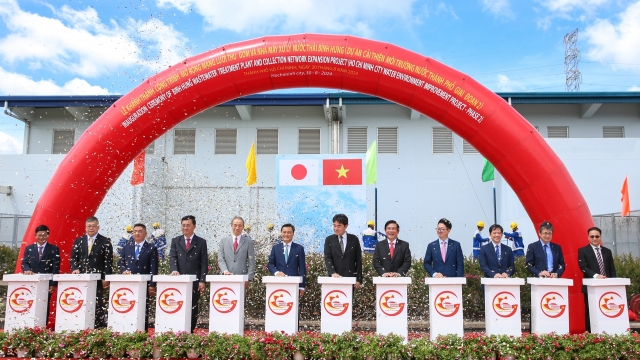National Focus
Quang Ninh maintains top ranking in provincial competitiveness index
With 70.36 out of 100 points in the provincial competitiveness index, Quang Ninh shows the best business environment in Vietnam, followed by Dong Thap, Long An and Ben Tre.

The other half of the top ten include Danang, Binh Duong, Quang Nam, Vinh Long, Hanoi and Ho Chi Minh City, according to the report on 2018 provincial competitiveness index (PCI 2018) launched by Vietnam Chamber of Commerce and Industry yesterday.
The 2018 PCI report based on responses from over 12,000 domestic and foreign enterprises shows noticeable improvement in Vietnam's business environment, including declining informal charges, less biased business environment, and encouraging process in administrative reforms.
However, constant efforts by provincial governments are required to create a more enabling environment, especially in the factors of transparency, labor quality and business support services as well as administrative procedures.
The level of business optimism demonstrated in the 2018 PCI report remains relatively high with 49 per cent of surveyed private firms and 56 per cent of surveyed foreign enterprises planning to expand their operation in the following two years, according to Vu Tien Loc, Chairman of Vietnam Chamber of Commerce and Industry. Micro-and small-sized enterprises experienced more difficulties in their business activities, though.
Foreign enterprises also reported positive insights about the business environment in Vietnam. However, several areas require the government's immediate attention, such as customs clearances, social insurance, taxes, and inspections. Labor quality, especially high-skilled labor supply, remains a bottleneck in the investment environment in Vietnam.
The 2018 PCI report also shows limited global integration of domestic firms. One of the factors hindering this process is the absence of an effective mechanism to ensure contract enforcement.
THACO sent first bananas to China
Lives under the scorching sun: Outdoor workers racing against climate change
Under unforgiving conditions, the outdoor workers - the backbone of urban economies - endure the harshest impacts of climate change while remaining overlooked by social safety nets. Their resilience and struggles highlight the urgent need for better protection in the face of rising temperatures and precarious livelihoods.
CEO Group chairman unveils guide to Vietnam real estate for foreigners
Doan Van Binh, Chairman of CEO Group and Vice President of the Vietnam National Real Estate Association, introduced his latest book, “Vietnam Real Estate for Foreigners,” at a launch event in Hanoi on Friday.
Women leading the charge in Vietnam's green transition
Acting for increased women’s participation and leadership in climate action, Vietnam can accelerate a transition that is more inclusive, just, and impactful.
Steam for girls: A journey of passionate and creative girls
The "Steam for girls 2024" competition provides a creative platform for Steam and an opportunity for students to connect with peers from various regions within Vietnam and internationally.
Politburo backs North-South high-speed railway proposal
The Politburo on Wednesday supported a plan to invest in a high-speed railway along the country’s North-South axis, marking a crucial step for the multi-billion-dollar project aimed at boosting economic growth and infrastructure development.
Ho Chi Minh City inaugurates Japan-funded wastewater treatment plant
Ho Chi Minh City has inaugurated the expanded Binh Hung wastewater treatment plant, now the largest facility of its kind in Vietnam.









































